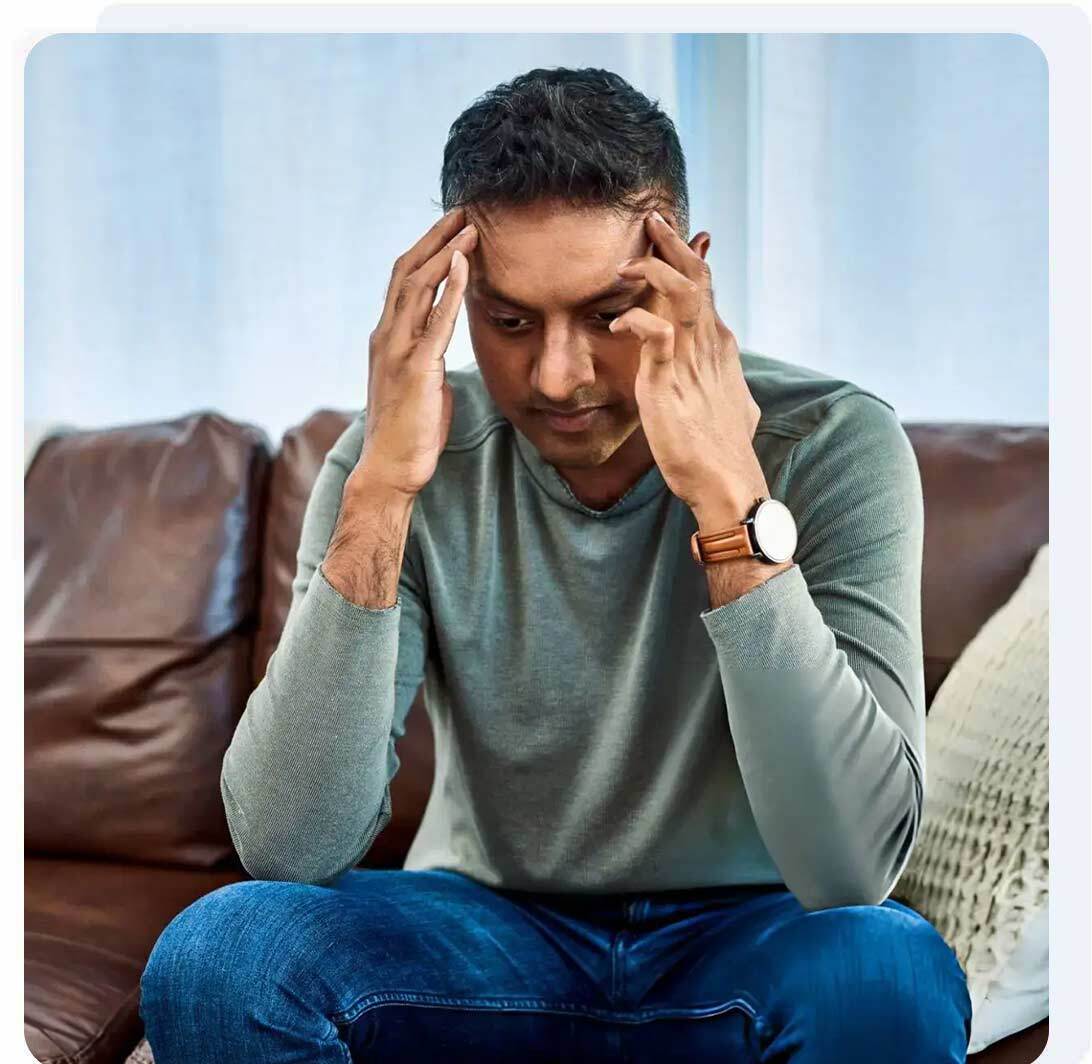Our Australian telehealth doctors are here to help you treat anxiety and depression from the comfort of your home.

Anxiety and depression are mental health issues that are common worldwide. Anxiety is associated with feelings of anxiousness, uneasiness, or constant worry. Depression, on the other hand, is a feeling of sadness, hopelessness, and social isolation.
It is estimated that around 3.4 million Australians suffer from anxiety and depression. It is common for people to feel sad or anxious in response to normal life stressors. However, when these feelings linger and become persistent, they can start affecting your daily life.
At Telehealth Doctor, our experts are trained to identify when your symptoms require care and are here to support you through it.
Anxiety and depression can significantly impact your daily life. These conditions can:
Cause physical symptoms, such as shortness of breath, headaches, upset stomach, or chest pain.
Create a sense of dissatisfaction with everything happening in your life.
Drain your mental energy, making it hard to work or perform daily activities.
Demotivate you from making efforts in your relationships or being there for your loved ones.
Create a sense of worthlessness or self-hatred.


Our telehealth doctors are experts at understanding what you need and when. They will take a complete assessment to get to know you and understand why you are feeling the way you are. This helps them create a care plan that works for you effectively. They will:
Write online prescriptions to help you get access to the medications you need
Discuss your triggers and help you with ways to avoid them
Teach you how to deal with feelings of anxiety and depression in positive and productive ways
Encourage you mentally to make better choices, walk the path of healing, and solve any unresolved trauma to finally move on for good
Provide you with physical and mental wellness tips
Offer follow-up appointments to track your mental health
Provide certificates for your condition
Mental health issues such as anxiety and depression can lead to complications if they are not managed properly. Severe depression can also lead to suicidal ideation or cause people to turn to substance abuse, which can lead to long-term damage and affect your ability to heal mentally.
Book your appointment today from anywhere in Australia and get answers to all your mental health-related questions. We know how special each person is and how you have every right to lead a healthy and fulfilled life.
Feeling anxious or depressed at times is normal, but these feelings shouldn’t become permanent. Get started and let us help you regain control over your mental well-being.
With an average star rating of 5/5
Yes, it is common to have depression and anxiety together. These mental health conditions may also have overlapping symptoms and people may confuse anxiety with depression and vice versa.
Anxiety and depression, if persistent, require proper treatment. Living a healthy life, focusing on what you eat, staying active, stress-releasing activities such as meditation, and opening up to people you trust can help. However, people do need medications. The first line of treatment for these conditions includes selective serotonin reuptake inhibitors (SSRIs).
The five common symptoms of anxiety include excessive worry, restlessness, rapid heartbeat, difficulty concentrating, and sleep disturbances. The symptoms can vary from person to person.
Depression means having feelings of sadness, hopelessness, and a lack of interest in things you once enjoyed. Anxiety means having constant worry, restlessness, and fear about future events. These symptoms can occur at the same time.

February 25, 2026
Glandular fever can knock you off your feet for weeks. It is one of the more exhausting viral infections a…
Read Article >>
February 25, 2026
Menopause affects every woman differently. Hot flushes, night sweats, mood changes, brain fog, and sleep problems are among the most…
Read Article >>
February 17, 2026
You need time off work due to illness. Your employer wants a medical certificate. Is an online option legally acceptable??…
Read Article >>